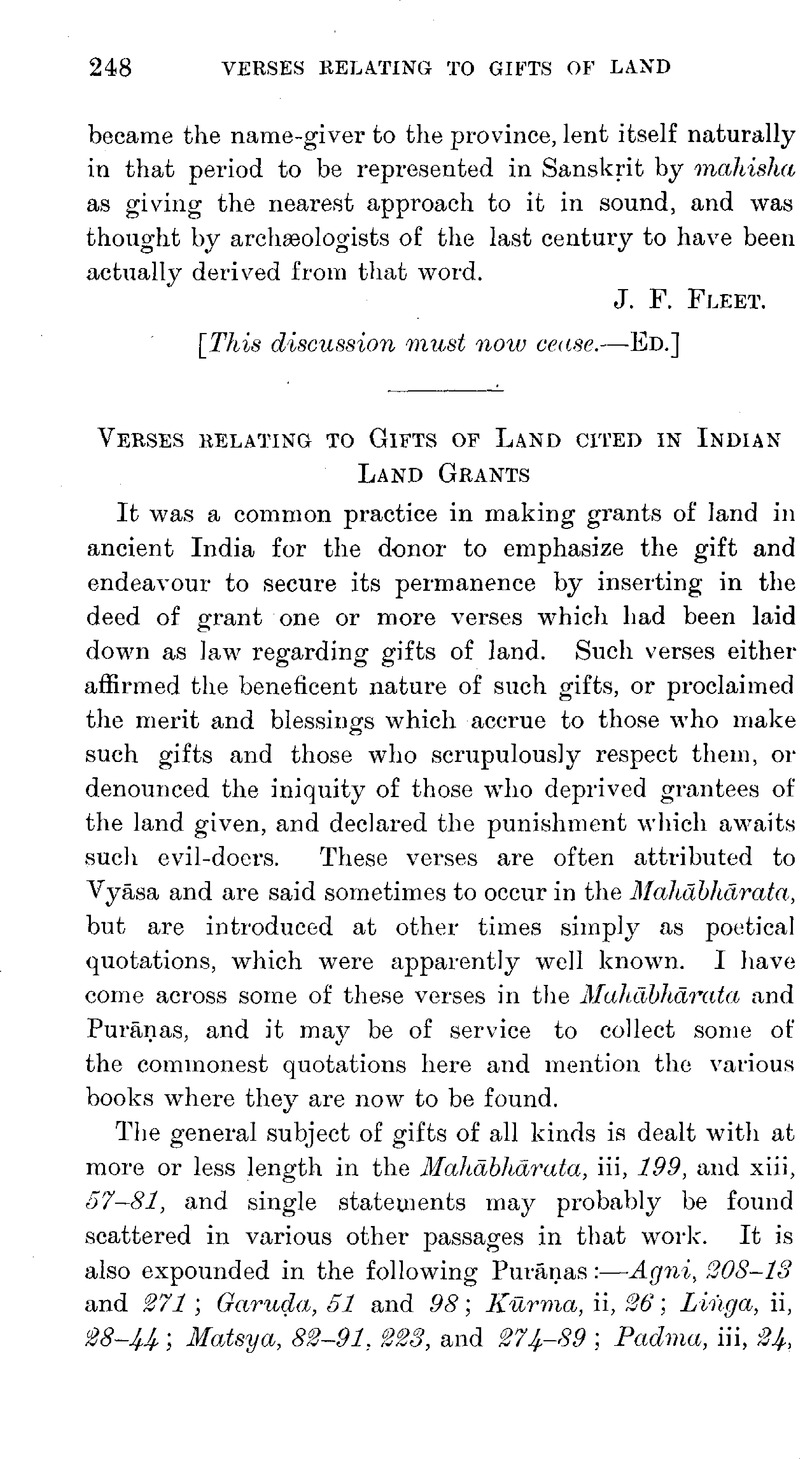No CrossRef data available.
Published online by Cambridge University Press: 15 March 2011

page 249 note 1 The editions cited are these: MBh., Calc.; Agni, Garuḍa, and Liṅga, by Jīvānanda Vidyāsāgar, Calc.; Kūrma and Varāha, Bibl. Ind.; Matsya, Padma, and Saura, Ānandāś., Poona; Bhaviṣya, Veṅkaṭeśvara, Bombay.
page 249 note 2 Fleet, , Gupta Inscriptions, pp. 96Google Scholar, 104, 108, 115, 119, 122, 127, 133, etc.
page 249 note 3 e.g. verse (2) alone in FGI., pp. 238, 247.
page 249 note 4 FGI., p. 296.
page 249 note 5 FGI., pp. 167, 179.
page 249 note 6 FGI., p. 194.
page 249 note 7 FGI., pp. 108, 115, 137, 296.
page 250 note 1 FGI., pp. 104, 108, 137.
page 250 note 2 FGI., pp. 119, 122, 127, 133.
page 250 note 3 FGI., pp. 119, 137.
page 250 note 4 JASB., 1910, vol. vi, p. 436.
page 250 note 5 FGI., pp. 108, 119, 137.
page 250 note 6 IA., 1910, p. 196.
page 250 note 7 FGI., p. 289.
page 250 note 8 FGI., pp. 238, 247.
page 250 note 9 Sic. The reading might be -sahasrāṇāṁ.
page 251 note 1 The same idea is expressed, but in different terms, in MBh. xiii, 62, 3176–7; Padma, vi, 33, 35; and Bhaviṣya, iv, 164, 33.
page 251 note 2 FGI., pp. 119, 122, 127, 133, 194, 198, 296.
page 251 note 3 FGI., pp. 96, 104, 108, 115, 137, 167.
page 251 note 4 See note 3.
page 251 note 5 FGI., p. 108.
page 251 note 6 FGI., p. 137.
page 251 note 7 FGI., p. 180. The actual reading there is Bhuṣvāṭavīṣv a-toyāsu, and Dr. Fleet suggests that the correct reading should be Vindhyâṭavīṣv, but it seems to me to be a mere clerical error for bhīṣv aṭavīṣv. Bhū means “land, district, piece of ground”, and the plural, bhuvas, is given as meaning “districts” in Monier-Williams' Dictionary.
page 252 note 1 FGI., p. 119.
page 252 note 2 Āsphoṭa is given in the dictionaries as a noun meaning “shaking, swaying to and fro”, and Monier-Williams adds “the sound of clapping or striking on the arms (as made by combatants, etc.)”. He gives the verb ā-sphuṭ in the causal as meaning “to split open, crush, grind; move, agitate quickly; shake”. Asphoṭayanti here must mean either “they clap their arms (in joy)” or, according to the meaning given by Childers to the Pali verb appoṭheti, “they snap their fingers in pleasure.”
page 252 note 3 FGI., pp. 194, 198, 296.
page 253 note 1 FGI., pp. 194, 198, 238, 247, 296.
page 253 note 2 FGI., pp. 96, 104, 108, 115, 167, 179.
page 253 note 3 FGI., pp. 119, 122, 127, 113.
page 253 note 4 FGI, p. 137.
page 253 note 5 See MBh. i, 1, 105, and 62, 2296.